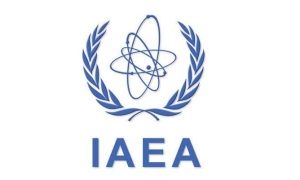by
Thomas Dworetzky, Contributing Reporter | September 21, 2017
The International Atomic Energy Agency is getting a new linear accelerator from Varian Medical Systems next year as part of a partnership agreement just signed at the IAEA General Conference.
The new machine will help the agency handle the growing flow of requests it gets for both standards and guidance from around the world.
“The new partnership will further enhance our capabilities to support member states in the safe and effective use of linacs through the provision of dosimetry services and training of health care professionals working in radiotherapy,” said May Abdel-Wahab, IAEA director of Human Health in a statement.
“Varian believes that access to high-quality care is a key component in addressing the global cancer challenge,” said Michael Sandhu, vice president for global market access. “We applaud the IAEA for creating a facility for training professionals from around the world on how to deliver safe and effective radiotherapy treatments for cancer, and we are pleased to be providing a Varian medical linear accelerator to assist the IAEA in its efforts.”
Over 80 percent of the 653 dosimetry audits IAEA has done for its members in 2016 involved linacs – so the new machine is a welcome addition.
“I’d like to thank Varian for partnering with the agency to help improve cancer care for people around the world,” said Aldo Malavasi, deputy director general and head of the Department of Nuclear Applications, which includes the Human Health Program. “This partnership illustrates how the IAEA and the private sector can work together to achieve valuable results.”
Linac use in developing countries is “steadily increasing,” according to Abdel-Wahab, and the Varian agreement will let the agency help to ensure that the technology is used safely through its training and support outreach.
But issues of best practices remain challenging on a global scale. In May,
the agency reported that its recommendations to reduce nuclear cardiology radiation exposure, published last year, were not being put into practice in many facilities.
These findings were the result of a study presented at the International Conference on Nuclear Cardiology and Cardiac CT 2017, and included data from 65 countries.
"Concerns have been raised about tests, including nuclear cardiology, that expose patients to ionizing medical radiation," said Dr. Edward Hulten of Walter Reed National Military Medical Center, who presented the study. “Medical radiation potentially raises the lifetime risk of cancer, which is important for all patients, especially younger patients or when considering additional radiation over time from further medical studies."
Back to HCB News
